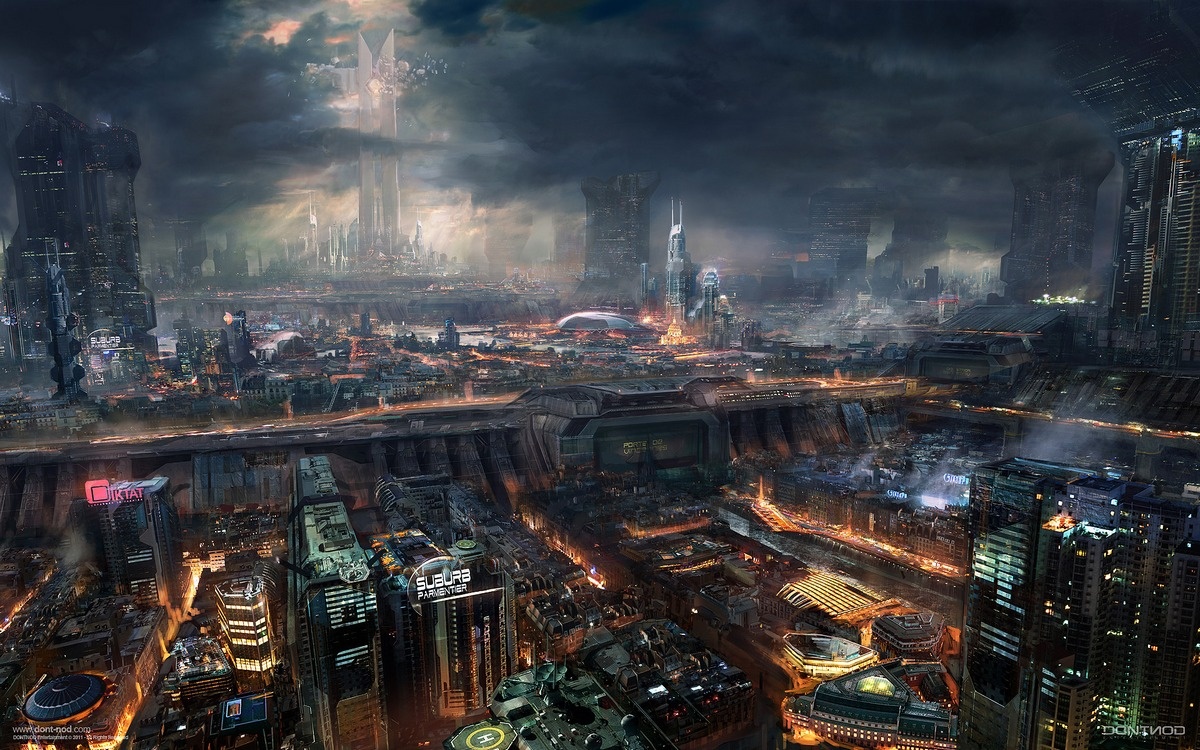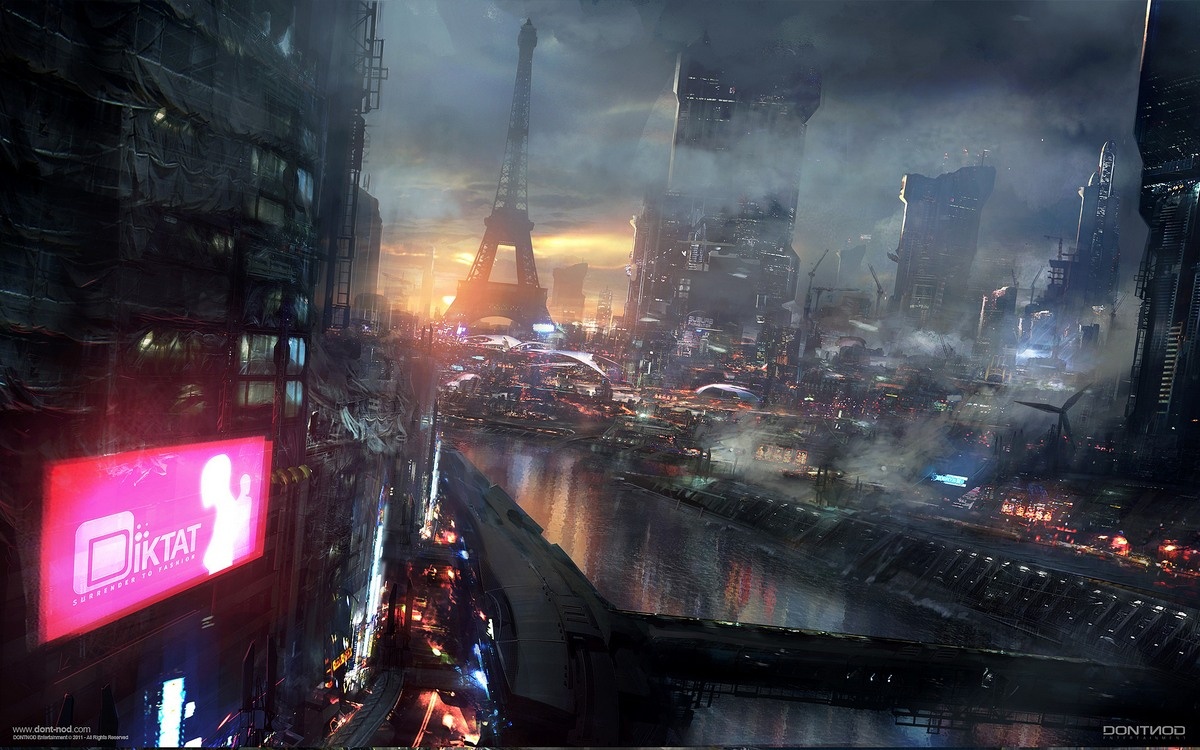Gamescom 2011: Adrift and the Power of Promise
From former Ubisoft Paris devs comes this surprisingly promising sci-fi game about what happens when memories become a commodity.
It's the biggest fear of any GameSpot editor to show up at an appointment and hear, "Well, we don't have any gameplay to show, but we do have this trailer." These are the meetings that inevitably involve dry discussions of a game's setting, some concept art of the main character looking grim and dour for no real reason, and very little else. We'll admit we were worried that our meeting with Dontnod Entertainment might turn out that way when we paid a visit to the upstart Parisian developer to see its newly announced action adventure game, Adrift. And in fairness, we only did wind up hearing about the game's premise, seeing a trailer, and looking at some concept art. But here's what surprised us: We walked away absolutely in love it.
Marvel Rivals - Official Loki Character Reveal Trailer | The King of Yggsgard Remnant 2 - The Forgotten Kingdom | DLC Launch Trailer Stellar Blade - Official "The Journey: Part 2" Behind The Scenes Trailer | PS5 Games Fortnite Festival - Official Billie Eilish Cinematic Season 3 Trailer Dead by Daylight | Tome 19: Splendor | Reveal Trailer Destiny 2: The Final Shape | Journey into The Traveler Trailer Starship Troopers: Extermination - Official "The New Vanguard" Update 0.7.0 Trailer 2XKO - Official Illaoi Champion Gameplay Reveal Trailer Solo Leveling: Arise - Character Gameplay Teaser #15: Seo Jiwoo Genshin Impact - Character Demo - "Arlecchino: Lullaby" Goddess Of Victory: Nikke | Last Kingdom Full Animated Cinematic Trailer Metaphor: ReFantazio The King’s Trial Trailer
Please enter your date of birth to view this video
By clicking 'enter', you agree to GameSpot's
Terms of Use and Privacy Policy
Dontnod, which was founded by Ubisoft Paris veterans, describes Adrift as a narrative-driven sci-fi game set in Paris circa 2084. "We're dealing with science fiction, but it's not space opera," says art director and former Marvel artist Aleksi Briclot. "We're not using 15-kilometer-long spaceships or creatures with tentacles. Our main goal is to create a believable near future." Besides just Briclot's stunning concept art of this futuristic Paris, what grabbed us the most was how instantly relatable the game's story is for anyone remotely in tune with today's technological trends.
In the world of Adrift, memories have become a commodity. Everyone in Paris is equipped with a brain implant called the SensEn, which is a device that records every event, interaction, or thought the wearer experiences. A thriving market for these memories has developed over time, and now, it's to the point where people are buying the memories of strangers to achieve their own secondhand happiness, as well as a powerful minority stockpile for economic and political gain. It's a premise inspired by today's rapidly growing ecosystem of smartphones and social networks, where so much of what we do and see is recorded and uploaded instantly for the world to share. But in Adrift, our general compulsion to see and experience everything has all but eroded the personal connection to these snapshots. They're just memories, no longer ours, no longer anyone's but the person who holds the receipt.
Creative director Jean-Maxime Moris isn't beating around the bush when it comes to literary influences. "You saw that the game takes place in 2084 and that is, of course, a direct reference to George Orwell and 1984," he says. "2084 is the next step. This is a society of control. This is a much more horizontal society, where the control is much more diffused and blurry. Is it the government? Is it a corporation? We don't know."
What Moris does know, however, is that his team isn't trying to be heavy-handed with a moral lesson. "This is not a game that says, 'this is the way it is, and you should all be afraid, run for cover and burn your smartphones.' This is a game that presents you with some material and lets you decide for yourself," he says. "We just think that memories are actually the last things we have."
Clearly, this is a game that promises to have a lot of narrative character behind it. But the murky gray morality of the plot isn't something you should expect from this vision of neo-Paris: Briclot's city designs are works of art in and of themselves, showing the city's various arrondisements in a striking mix of vibrant colors and classical European architecture. The new and the old clash beautifully in this early art design, and if the graphics engine can come close to re-creating these pieces of concept art, Adrift should be a game with plenty of visual character as well.
Of course, one missing component to all of this--and it is a big one--is knowing how the game actually plays. Moris promises "our game will be extremely well anchored in known action adventure codes, so you'll have a lot of combat, some light exploration, platforming and puzzles" but also "some key gameplay innovations we'll talk about later." None of these vague promises instilled nearly as much confidence as the talk about the game's overall setting, but then again, they didn't cause much concern either. They just fluttered by the way vague promises do. One thing that was reassuring, however, was hearing the game's creative director use BioShock as a reference point for building a game that's both fun and intelligent, taking inspiration from the fact that Irrational's modern masterpiece "was an extremely good game and a visceral and immersive one. But you play it for a few hours, and you realize there's much more to it."

Will Adrift live up to this initial promise? That's anyone's guess. A lot of games have featured a terrific setting only to fall flat once you actually pick up a controller, but few games combine such an enticing mix of stylized sci-fi and a central theme that manages to resonate so deeply with today's culture. There is promise here, but until we see the game up and running, that's all we've got. With Adrift not due out until 2012 (on the Xbox 360 and PlayStation 3), that may not happen anytime soon. But at least we can go on hoping for a while longer.
Got a news tip or want to contact us directly? Email news@gamespot.com

Join the conversation